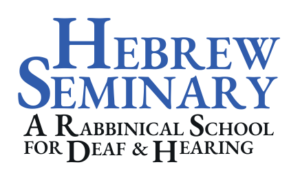Registration
To enroll in courses, Rabbinic, Pararabbinic, Mekhinah, and auditing students should contact Rabbi Shari Chen, Dean of Students, at rabbichen@hebrewseminary.org.
All class times are listed in Central Time.

Jewish Healing Meditations
Rabbi Shari Chen
For over 25 years I had the honor to work alongside Rabbi Dr. Douglas Goldhamer as he taught healing meditations, led Kabbalistic services, held Healing Prayer Groups, and most importantly prayed together for healing of individual members of our community daily. In this class using Rabbi Goldhamer’s introductory book This Is for Everyone, we will explore and practice many different healing meditations and prayers.

Survey of Midrashic Literature
Rabbi Dr. Allan Kensky
In this course we will be introduced to the major works of Rabbinic Midrash and will examine the place of Midrash in the rabbinic canon. We will study key Midrashic passages in Hebrew, with an eye to acquiring the tools to unlock Midrashic texts on our own. We will explore Midrashic themes and gain an appreciation of Midrash as a source for religious meaning and inspiration for our day.

Heretics in the Babylonian Talmud
Rabbi Daniel Vaisrub
We will study several Talmudic texts and commentaries thereon dealing with famous (perhaps infamous) heretics. Along the way, we will ask: what are heresy and fidelity? Do these notions evolve?

Beginning Biblical Hebrew
Rabbi Shari Chen
Join us for an introductory class in the language and grammar of the Torah. Whether you are a beginning Rabbinical or Pararabbinical student, or someone interested in learning to read, and decipher the language of the Torah, this class is for you. This class will introduce you to the different Hebrew grammatical principles as well as introducing key Biblical vocabulary words. (A basic knowledge of the Hebrew letters would be helpful.)

Liturgy of Three Festivals
Rabbi Jonah Rank
Our spiritual forebears were accustomed to traveling to Jerusalem during three annual pilgrimage festivals: Sukkot, Passover, and Shavu’ot. Although the specific observances of these holidays have evolved drastically over time, contemporary Jewish religious expression still marks these unique holy days with specialized liturgy. In this course, we will study and even workshop words, melodies, traditions, and rituals that merge to form profound modern reclamations of these sacred moments in the Jewish calendar.

Diversity in the Jewish Community
Rabbah Dr. Rona Matlow
This course will explore various Jewish diversity topics including sex/gender/sexuality, disability, White Supremacy and the church/Church, historical streams of Judaism and modern streams of Judaism and how this all comes together in Jewish communal life. This course will be evaluated through course participation, short writing assignments to assess reading synthesis and two larger writing assignments – a midterm and a final. There will be no closed-book examinations during this course. There will also be periodic in-class presentations of various types, as well as class discussions to aid in comprehension of the course materials.
